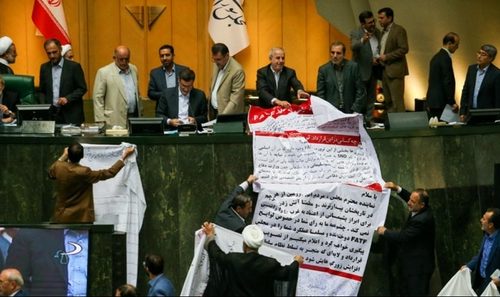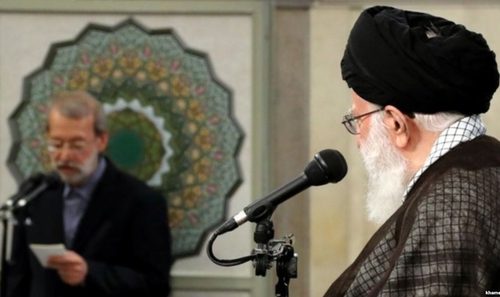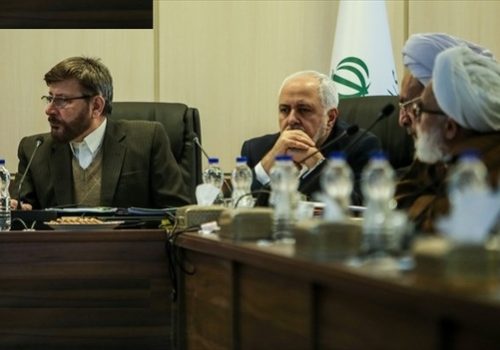Why Europe should delay FATF countermeasures on Iran
At the conclusion of its October 2019 plenary meeting, the Financial Action Task Force (FATF), going out in blaze of glory, issued Iran an ultimatum. Should Iran fail to “enact the Palermo and Terrorist Financing Conventions in line with the FATF Standards,” prior to the forthcoming plenary meeting which opens on February 16, then the global standards setting body would “fully lift the suspension of counter-measures and call on its members and urge all jurisdictions to apply effective counter-measures.”
In late December 2019, with the deadline fast approaching, an impressive range of Iranian stakeholders made significant public statements in favor of enacting the Palermo and Terrorist Financing Conventions. These stakeholders included senior figures in the Rouhani administration, including the president himself, chief of staff Mahmoud Vaezi, vice president for legal affairs Laya Joneidi and economy minister Farhad Dejpasand, as well as other stakeholders including central bank governor Abdolnasser Hemmati and senior parliamentarian Kamal Dehghani, among others. These officials expressed serious and well-founded concerns that Iran would be economically isolated in the event Tehran failed to implement its FATF action plan. These concerns were echoed by senior figures in the Iranian business community as well, including Pedram Soltani, vice chairman of the Iran Chamber of Commerce, who warned that even Russian and Chinese banks have indicated that they would struggle to maintain financial links to Iran in the event that countermeasures were reapplied.
These messages, issued via television and newspaper interviews in addition to social media, were ably and enthusiastically amplified by Iranian journalists. The statements can therefore be understood as part of a concerted campaign, extending to private lobbying, which intended to establish that implementation of the FATF action plan is consistent with Iran’s national interests. As these statements were issued, there was increasing optimism that this campaign would help sway Supreme Leader Ayatollah Ali Khamenei to lend his support to the enactment of the two bills by instructing the Expediency Council to drop its opposition in time for preparatory meetings of the upcoming FATF plenary.
However, on January 3, an unprecedented US airstrike killed Islamic Revolutionary Guard Corps Major General Qasem Soleimani, thrusting the United States and Iran to the verge of war. This event and its aftermath have engulfed the attentions of Iranian policymakers and made further progress on the FATF file highly unlikely in the short-term, not least because of the complex politics surrounding the bills, which are widely perceived to be an extension of the US maximum pressure campaign.
Nonetheless, Iran’s economic policymakers and economic operators remain committed to reforms that improve the transparency of the Iranian financial system. Rouhani has continued to criticize the legislative limbo facing the FATF bills. In a January 27 speech he said, “A bill, approved by the government and parliament cannot just hang there awaiting approval… and cause problems in our interactions with international banks.” The reapplication of countermeasures on Iran would undo hard-won reforms and decisively block the pathway to further reforms. European stakeholders should strongly encourage the Financial Action Task Force to provide Iran more time for four reasons.
First, Iran cannot have been reasonably expected to enact this controversial legislation at a time of increasing military tensions with the United States. The FATF has previously shown understanding towards countries facing instability and insecurity. Syria and Iraq, have remained on the so-called “grey list” for 10 and 7 years respectively. Afghanistan was removed from the grey list after 5 years. During the course of 2018, Iran made demonstrable progress in the reform process, even while the Trump administration’s “economic war” gathered pace—it is understandable that the FATF sought to maintain time pressure for reform. But the airstrike and subsequent Iranian military response, events that were largely outside the control of the technocrats involved in the FATF reform process, have created a fundamental short-term impediment to progress.
Second, the reapplication of FATF countermeasures will have a deleterious impact on the operations of European economic operators, including those companies engaged in humanitarian trade in food and medicine in Iran. Further downward pressure of European trade with Iran will reduce already limited European leverage in de-escalation efforts while also reducing the costs for Tehran to pursue escalatory policies that would lead to greater economic isolation.
Third, Iran will soon hold parliamentary elections that are expected to favor hardliner candidates. In one early indication of the changing tide towards a more extreme politics, reformist MP Mahmoud Sadeghi, a vocal supporter of FATF reforms, recently announced he will introduce a bill calling for Iran’s withdrawal from the Nuclear Nonproliferation Treaty (NPT). But the gambit did not prevent him from being included among the many reformist parliamentarians barred from running for reelection by the Guardian Council. Should the current bills related to the Palermo and Terrorist Financing Conventions fail to be enacted, whether because of the decision of the Expediency Council or because of a decision on the part of the FATF to reapply countermeasures, the legislative pathway for financial transparency reforms will be closed.
Finally, the application of countermeasures will interfere with the operationalization of INSTEX—due to impact on the banking sector—among other European initiatives. Technical engagement on FATF reforms are a principal area of constructive dialogue between Europe and key stakeholders within Iran’s technocratic policy establishment—including the central bank, the presidency, and private sector bodies. These are the same groups engaged in the operationalization of INSTEX as well as projects related to European technical assistance and development projects. The future of contrastive Europe-Iran ties depends in large part on the maintenance of these relationships. The reapplication of countermeasures at this juncture would significantly weaken these technocratic stakeholders and compromise Europe’s ability to position itself as a partner for Iranian political and economic reforms.
Despite immense political headwinds, a coalition of forward-thinking Iranian stakeholders has made extraordinary efforts to pass the legislation required by the FATF action plan. These efforts have been either diminished or ignored by the Trump administration, as they undermine the characterization of Iran as being incapable of financial reforms. With the Trump administration continuing to politicize the work of the FATF as a technical body, European interests are best served by preserving the possibility of greater financial transparency in Iran and by maintaining Tehran’s basic functional links to the international financial system.
Esfandyar Batmanghelidj is the founder of Bourse & Bazaar, which tracks developments in Iran’s economy. Follow him on Twitter: @yarbatman.
Image: Financial Action Task Force President Xiangmin Liu will attends a news conference on October 18, 2019 (Reuters)


